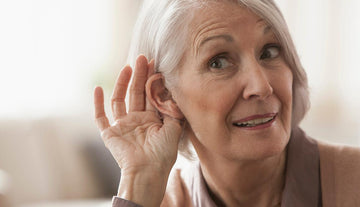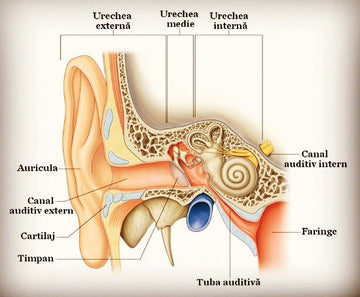
Loud noise and prolonged exposure to high-intensity sounds can cause irreversible hearing damage. Although the risks increase with age, there are steps you can take to protect your hearing now and prevent problems in the future.
1. Get regular hearing tests
-
Why are they important?
Hearing tests provide a baseline for monitoring hearing health. They allow for early detection of problems, allowing action to be taken before the loss becomes significant. - Recommendation: Include a hearing test as part of your annual medical checkups, especially if you work in noisy environments.
2. Use ear protection
-
When and where?
Protect your ears in noisy environments, such as: - Concerts and noisy events.
- Construction sites or other noisy workplaces.
- Mowing the lawn or using other household equipment.
- Airports, train stations or car races.
- Hunting or shooting.
- What to use?
- Regular or custom earplugs, available at pharmacies or through audiologists.
- Ear protectors, which can significantly reduce noise exposure.
3. Monitor the volume of devices
- Limit the sound intensity:
- Adjust the volume of your TV and mobile devices so that it is loud enough to hear clearly, but not excessively so.
- If the sound is heard from other rooms, it is a sign that the volume is too high.
- Listening safely on headphones:
- Avoid listening to music at maximum volume, especially for long periods of time.
- Choose headphones that block out background noise so you don't have to turn up the volume.
4. Opt for custom ear molds
- What are these?
- Custom molds conform to the unique shape of the ear canal, providing better isolation and a superior audio experience.
- Who are they recommended for?
- People who frequently use headphones.
- Musicians or those frequently exposed to noise.
- Benefits:
- They reduce outside noise.
- Ensures clear and comfortable sound for long periods.
5. Avoid exposure to ototoxic drugs and substances
- What are ototoxic substances?
- Medications or chemicals that can affect the inner ear and lead to hearing loss or tinnitus (ringing in the ears).
- Examples of risky medications:
- Quinine, chloroquine (used in the treatment of malaria).
- Salicylates such as aspirin (in high doses).
- How to protect yourself?
- Consult your doctor before starting any treatment.
- Report any unusual symptoms, such as tinnitus or dizziness, immediately.
- If you work with industrial chemicals, use protective equipment and follow safety protocols.
6. Educate yourself about the dangers of noise
- Sounds exceeding 85 decibels can cause permanent hearing damage.
- Common sources of loud noise:
- Lawn mowers: 106 dB .
- Fireworks: 150 dB .
- Rock concerts: 120 dB .
Conclusion
Protecting your hearing requires effort and awareness, but the benefits are long-term. Invest in protective equipment, monitor your environmental noise, and see an audiologist regularly to ensure your hearing remains healthy.




